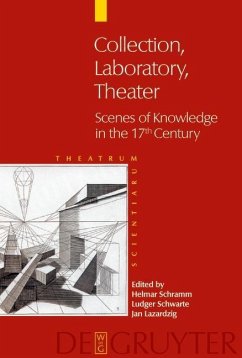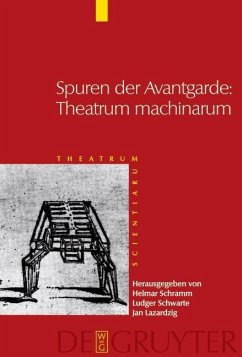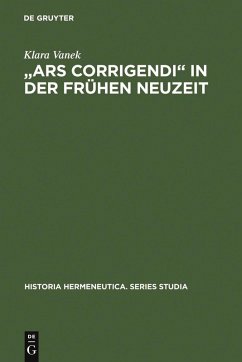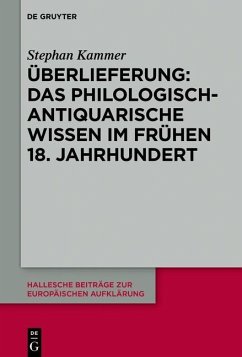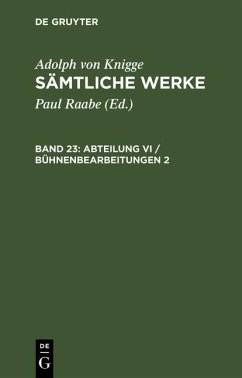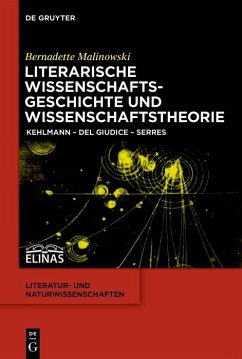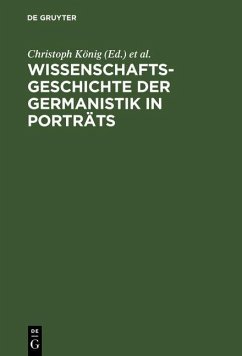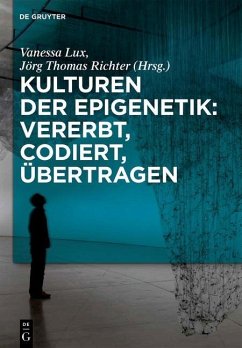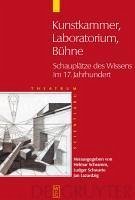
Kunstkammer - Laboratorium - Bühne (eBook, PDF)
Schauplätze des Wissens im 17. Jahrhundert
Redaktion: Schramm, Helmar; Lazardzig, Jan; Schwarte, Ludger

PAYBACK Punkte
0 °P sammeln!
This volume launches a new, eight-volume series entitled Theatrum Scientiarum on the history of science and the media which has arisen from the work of the Berlin special research project on "Performative Cultures" under the aegis of the Theatre Studies Department of the Free University.The volume, authored by distinguished academics, examines the role of space in the constitution of knowledge in the early modern age. Kunstkammern (art and curiosities cabinets), laboratories and stages arise in the 17th century as instruments of research and representation. There is, however, still a lack of p...
This volume launches a new, eight-volume series entitled Theatrum Scientiarum on the history of science and the media which has arisen from the work of the Berlin special research project on "Performative Cultures" under the aegis of the Theatre Studies Department of the Free University.
The volume, authored by distinguished academics, examines the role of space in the constitution of knowledge in the early modern age. Kunstkammern (art and curiosities cabinets), laboratories and stages arise in the 17th century as instruments of research and representation. There is, however, still a lack of precise descriptions of the epistemic contribution made by material and immaterial space in the performance of knowledge. Therefore, the authors of this volume present a novel view of the conditions surrounding the creation of these spatial forms. Account is taken both to the institutional framework of these spaces and their placement within the history of ideas, the architectural models and the modular differentiations, and to the scientific consequences of particular design decisions. Manifold paths are followed between the location of the observer in the representational space of science and the organisation in time and space of sight, speech and action in the canon of European theatrical forms. An account is given not only of the mutual architectural and intellectual influence of the spaces of knowledge and the performance spaces of art; they are also analysed to ascertain what was possible in them and through them.
The volume, authored by distinguished academics, examines the role of space in the constitution of knowledge in the early modern age. Kunstkammern (art and curiosities cabinets), laboratories and stages arise in the 17th century as instruments of research and representation. There is, however, still a lack of precise descriptions of the epistemic contribution made by material and immaterial space in the performance of knowledge. Therefore, the authors of this volume present a novel view of the conditions surrounding the creation of these spatial forms. Account is taken both to the institutional framework of these spaces and their placement within the history of ideas, the architectural models and the modular differentiations, and to the scientific consequences of particular design decisions. Manifold paths are followed between the location of the observer in the representational space of science and the organisation in time and space of sight, speech and action in the canon of European theatrical forms. An account is given not only of the mutual architectural and intellectual influence of the spaces of knowledge and the performance spaces of art; they are also analysed to ascertain what was possible in them and through them.
Dieser Download kann aus rechtlichen Gründen nur mit Rechnungsadresse in A, B, BG, CY, CZ, D, DK, EW, E, FIN, F, GR, HR, H, IRL, I, LT, L, LR, M, NL, PL, P, R, S, SLO, SK ausgeliefert werden.




